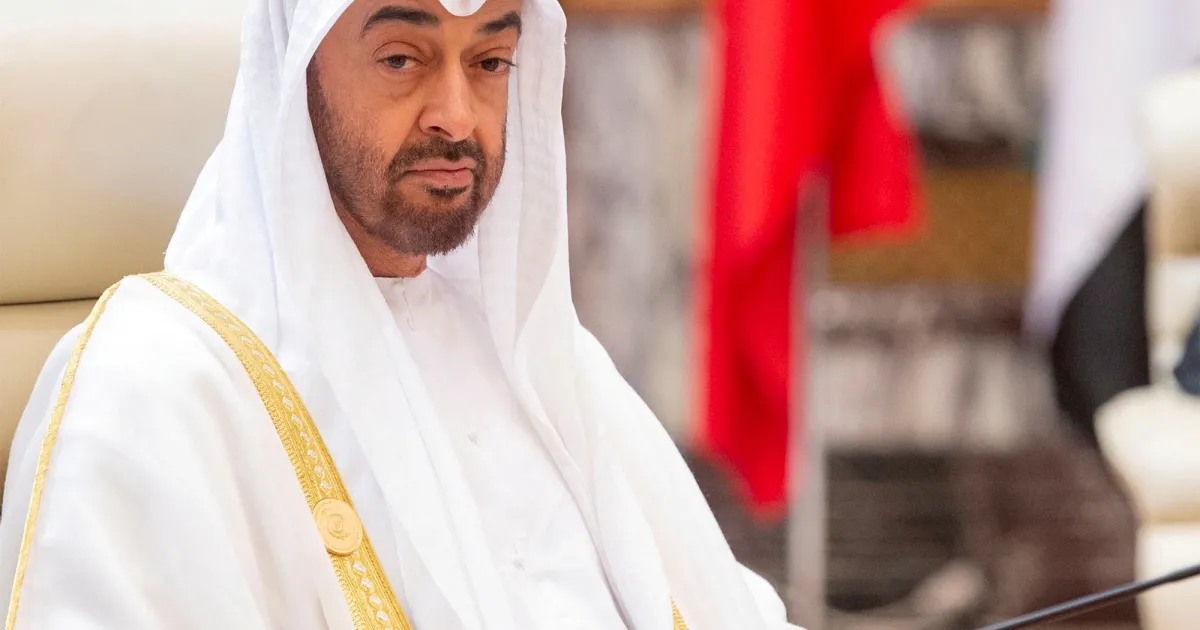goldengaterestaurantphoenix.com – Sheikh Mohammed bin Zayed Al Nahyan (commonly known as MBZ), the crown prince of Abu Dhabi and the de facto leader of the United Arab Emirates (UAE), ascended to the presidency in May 2022 following the passing of his father, Sheikh Khalifa bin Zayed Al Nahyan. As the new president of the UAE, Sheikh Mohammed bin Zayed’s leadership marks a new chapter in the country’s development, building on the legacies of his predecessors while shaping a forward-looking vision for the nation’s future. Known for his pragmatism, strategic thinking, and strong leadership, Sheikh Mohammed has quickly become a transformative figure in the UAE and the broader Middle East region.
Early Life and Background
Born on March 11, 1961, Sheikh Mohammed is the son of the founder of the UAE, Sheikh Zayed bin Sultan Al Nahyan, and the brother of the late Sheikh Khalifa. Growing up in a family deeply involved in the affairs of the country, Sheikh Mohammed was exposed to governance from an early age. He was educated in the UAE and later attended the Royal Military Academy Sandhurst in the United Kingdom, where he received military training that would later inform his strategic approach to both defense and governance.
Sheikh Mohammed began his leadership journey in the 1990s, when he was appointed as the Deputy Crown Prince of Abu Dhabi. His significant role in shaping UAE policy became evident as he rose through the ranks, eventually becoming the Crown Prince in 2004. During this period, he assumed increasing responsibilities, especially in defense and foreign policy, becoming a central figure in shaping the nation’s internal and external relations.
Ascension to the Presidency
In May 2022, following the passing of his brother, Sheikh Khalifa, Sheikh Mohammed bin Zayed officially became the president of the UAE. His presidency marks the culmination of years of preparation, as he has been the country’s de facto ruler for much of the previous decade. While the transition was expected, it was a historic moment that highlighted Sheikh Mohammed’s long-standing influence on the UAE’s development.
Under Sheikh Mohammed’s leadership, the UAE remains committed to maintaining the legacy of unity, prosperity, and stability established by his father, Sheikh Zayed. Sheikh Mohammed’s leadership has also emphasized bold new initiatives aimed at securing the country’s place in the evolving global landscape.
Vision 2031 and Economic Diversification
As president, Sheikh Mohammed continues to push forward with a vision for the UAE that focuses on innovation, sustainability, and economic diversification. While oil and gas remain central to the UAE’s economy, Sheikh Mohammed has made it clear that the country must evolve to thrive in a post-oil world. His leadership is focused on transitioning the economy into a knowledge-based, technologically advanced society.
Under Sheikh Mohammed’s leadership, the UAE has continued to develop its Vision 2031 plan, which includes ambitious goals to reduce dependence on hydrocarbons and promote growth in key sectors such as renewable energy, artificial intelligence, technology, space exploration, and tourism. His emphasis on sustainable development has led to significant investments in green energy initiatives, such as the development of the world’s largest single-site solar park in Abu Dhabi, and the country’s push for becoming a leader in global climate action.
In addition, Sheikh Mohammed has overseen significant economic reforms aimed at fostering entrepreneurship, attracting foreign investment, and promoting innovation. His vision is to make the UAE a global hub for talent, technology, and investment, creating opportunities for future generations of Emiratis and people from around the world.
Strengthening the UAE’s Global Role
Sheikh Mohammed bin Zayed is committed to maintaining and enhancing the UAE’s diplomatic and geopolitical influence. Under his leadership, the UAE has continued its active role in global affairs, focusing on fostering economic ties, security cooperation, and humanitarian support. His foreign policy is marked by pragmatism, strategic partnerships, and a focus on regional stability.
Sheikh Mohammed has prioritized strengthening ties with key global powers, including the United States, China, and the European Union. The UAE under his leadership has also played an increasing role in shaping Arab and Middle Eastern geopolitics, often positioning itself as a mediator in regional conflicts and as a key actor in the Gulf Cooperation Council (GCC).
His leadership has also placed emphasis on fostering security and defense capabilities. The UAE military, under his guidance, has modernized significantly and has been involved in various regional security efforts, from humanitarian aid to peacekeeping operations.
Technological Innovation and Space Exploration
One of the hallmarks of Sheikh Mohammed’s presidency is his focus on technological innovation and space exploration. He has envisioned the UAE as a global leader in technology and science, and this ambition is reflected in the country’s investments in artificial intelligence, robotics, and space missions.
The UAE’s achievements in space exploration, particularly the successful launch of the Hope Mars Mission in 2020, have garnered international attention. This mission made the UAE the first Arab nation to send a spacecraft to Mars, marking a significant milestone in the nation’s ambition to be at the forefront of scientific and technological innovation.
Under Sheikh Mohammed’s leadership, the UAE has also made strides in the development of a space industry, focusing on satellite technology, space research, and scientific advancements. His vision is to inspire future generations of Emiratis to pursue careers in science, technology, engineering, and mathematics (STEM) fields and to position the UAE as a global leader in space exploration.
Humanitarian Initiatives and Social Welfare
As president, Sheikh Mohammed bin Zayed continues to prioritize humanitarian efforts both within the UAE and around the world. The UAE has long been known for its generosity, and under Sheikh Mohammed, the country has become one of the largest donors of humanitarian aid globally, contributing billions to assist countries in need.
His government has played a significant role in disaster relief, providing aid to regions affected by conflicts, natural disasters, and humanitarian crises. This commitment to philanthropy is rooted in the values of generosity and compassion established by the country’s founders.
In addition to international humanitarian efforts, Sheikh Mohammed has emphasized the importance of improving the quality of life for UAE citizens. His government has continued to invest in healthcare, education, housing, and infrastructure to ensure the well-being of Emiratis, focusing on policies that encourage economic participation and social equity.
Domestic Reforms and Modernization
Internally, Sheikh Mohammed bin Zayed has introduced several social reforms aimed at modernizing the UAE’s legal, social, and cultural frameworks. These reforms have focused on improving the rights of women, enhancing youth participation in the workforce, and creating a more inclusive society.
Notably, under Sheikh Mohammed, the UAE has made significant strides in gender equality, with women playing an increasingly prominent role in government, business, and society. Reforms to the country’s labor laws, family laws, and other societal structures have positioned the UAE as a leader in progressive governance in the Middle East.
Legacy and Future Outlook
Sheikh Mohammed bin Zayed’s leadership has already marked a new chapter in the UAE’s history, characterized by progress, modernity, and an emphasis on innovation. His vision for the future of the UAE focuses on securing the country’s position as a global leader in the fields of technology, space exploration, economic development, and humanitarian support.
As the UAE continues to grow and evolve, Sheikh Mohammed’s influence will be felt not just in the UAE, but across the broader region and the world. His commitment to both preserving the UAE’s traditions and pushing the nation forward into a new era of prosperity and innovation has made him one of the most influential leaders of his generation. With his continued leadership, the UAE is poised to remain a key player on the global stage for years to come.

